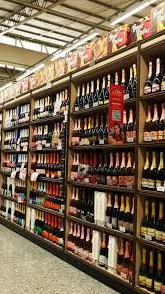Protests and Economic Pushback Follow Trump’s 25% Tariffs on Canadian Imports
In response to President Donald Trump’s decision to impose a 25% tariff on most Canadian imports, Canadians have taken to boycotting US-made goods, changing their travel plans, and participating in public protests. The tariffs, which were announced on February 1, have sparked widespread anger across Canada, with citizens voicing their displeasure in a variety of ways. Many have opted to cancel trips to the US and are avoiding American products as a direct act of protest.
Trump’s move to impose tariffs on its neighbour has been perceived by many Canadians as an aggressive and unfriendly economic tactic. Drew Dilkens, Mayor of Windsor, Ontario, located directly across the border from Detroit, expressed the widespread shock, commenting, “It feels like Trump is reshaping the global order by starting with his closest ally… If he can do this to Canada, what might he do to others?”
Border cities like Windsor are already feeling the economic impact, with C$400 million worth of trade crossing the Ambassador Bridge each day. Dilkens has encouraged local residents to support Canadian businesses in light of the new trade measures.
In Calgary, local resident Ken Lima-Coelho noted a rise in Canadian nationalism, with his children now favouring Canadian-made products. His son, for example, even considered sewing a small Canadian flag onto his backpack before a planned European trip.
In retaliation, Canadian Prime Minister Justin Trudeau announced tariffs on C$155 billion of US goods, with the first round, worth C$30 billion, scheduled to take effect on February 4, coinciding with the start of Trump’s tariffs. The remaining duties will follow three weeks later.
Ontario Premier Doug Ford also responded by removing US-made alcoholic beverages from shelves at the Liquor Control Board of Ontario (LCBO). This decision, designed to support local businesses, is significant given the LCBO typically sells nearly C$1 billion worth of American products each year.
Frustration among Canadians was also evident at public sporting events, where US national anthems were met with boos during a hockey game between the Ottawa Senators and Minnesota Wild, and during a Toronto Raptors game against the LA Clippers.
Despite the growing anger, Manitoba Premier Wab Kinew urged the nation to remain composed, reminding Canadians that the issue was with the US administration, not the American people. “For many of our families, our relatives on the other side of the 49th parallel are still our friends,” Kinew stated, highlighting the deep ties shared between the two nations.
For many Canadians, however, the situation has escalated. Mike Davies, a 64-year-old British Columbia resident, took action after Trump’s controversial social media posts about potentially making Canada the 51st state. He launched a personal boycott of US products, cancelling his Netflix subscription, ceasing his use of Amazon, and even cancelling a planned visit to a friend in North Carolina in protest of the tariffs and Trump’s remarks.
As the trade conflict persists, Canadians are increasingly reconsidering their consumer habits and travel choices, with both political and personal decisions being influenced by the ongoing tensions between the two countries.








